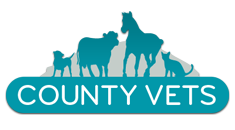Buying a new horse is a very exciting prospect, but before you buy, you should think carefully about what type of horse or pony you are looking for, and its intended use.
When you have found what you hope to be your ideal horse, we strongly recommend a pre-purchase veterinary examination. A pre-purchase vetting will not only identify any existing health problems but may also identify potential problems that may occur in the future. To make a mistake and buy the wrong horse could be costly and heartbreaking.
Whilst this may seem costly, it may save you a lot of money in the long run. Veterinarians have developed a general routine of examination recognized by BEVA (British Equine Veterinary Association) which has been found to be appropriate as a means of detecting signs of disease and injury.
Although the pre-purchase examination does not guarantee the future soundness of the horse, it enables the vet to record any medical abnormalities or concerns identified at the time of the examination.
Before performing a pre-purchase examination the veterinary surgeon should endeavour to ascertain who is selling the horse and the horse’s identity. If, as a result of such information, the veterinary surgeon feels any conflict of interest, which means she cannot act wholly in the interests of the purchaser, the veterinary surgeon should decline to perform the examination. If the veterinary surgeon feels able to act without conflict, the fact that the seller is an existing client of the practice should be declared to the purchaser in advance of the examination. Additionally, if the veterinary surgeon, or her practice, have any prior knowledge of the horse from any source, permission should be obtained from the seller for full disclosure to the purchaser of all such information that might be relevant. If this is not possible, for any reason, the veterinary surgeon should decline to perform the examination.
The vetting is carried out on behalf of the purchaser and it is important to discuss fully with the vet beforehand the intended type of and regularity of use that the horse is intended for. This ensures that the vet can give an accurate assessment as to whether the horse will be fit for the purpose intended based on its health.
A vetting not only gives you a professional opinion about the health and suitability of a horse but may also be required for insurance. Many insurance companies require a vetting before they will insure the animal. They will tell you whether this needs to be a full 5-stage vetting or only a 2-stage vetting.
If you would like to arrange a pre-purchase examination, then please phone us to arrange a time and day. We will require the following information when you book:
- The name, age, breed, height, sex and colour of the horse to be examined, the intended use of the horse, and any specific concerns you may have.
- The full name, address and contact number of the current owner of the horse. We are unable to carry out pre-purchase examinations on horses that are already under the care of our practice, as it is deemed as a conflict of interest.
- The location of the vetting.
Facilities required:
- Dark Stable – to allow thorough examination of the horse’s eyes
- Hard, level trot up area (e.g a quiet road)
- Tack, rider and an area suitable for strenuous exercise
- Firm lunge area if possible (will require lunge rein)
Points to advise the vendor of:
- The horse will need to be stabled overnight, or at least 3 hours prior to examination
- A blood sample is routinely taken
- The relevant passport/vaccination card is to be made available for the vet
If you decide that you only require a 2 stage vetting please be aware that this is a very limited examination, and you will be required to sign and return a Limited Pre-Purchase Examination (PPE) form before the vetting may proceed, confirming you understand the limitations.


